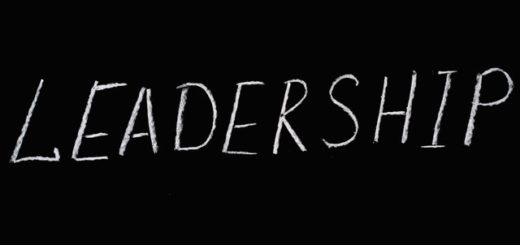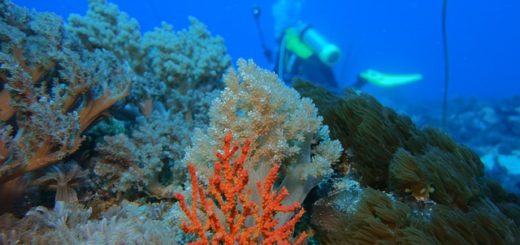Terms of Reference for Consultancy on Developing a Strategy for Effective Support of Unemployed Youth for Transition into Decent Work and Sustainable Jobs in the Coastal Region of Kenya – Aga Khan Foundation
1. Background
Youth unemployment is a major challenge and one of the top priorities of the Kenyan government. TheCOVID-19 pandemic has amplified many of the challenges already faced by youth in Kenya. With the advent of COVID-19, many of these youth are now at risk of being left behind in education, economic opportunities, health, and well-being, with an increased risk of psychosocial distress, during a crucial stage of their life. The COVID-19 pandemic disproportionately affected vulnerable groups like youth, who are now more likely to be left unemployed or are in precarious job contracts and working arrangements without social protection. Disadvantaged and underprivileged youth in rural areas of Kenya are disproportionally affected due to the lack of access to remote learning tools. This will widen the skills gap making it critical to explore pr rams that increase access to upskilling and linkages to employment opportunities targeting low-skilled and vulnerable youth groups.
2. About the Project
The project aims at strengthening mechanisms for the delivery of youth-friendly livelihood opportunities and life skills. AKF has been working with partners to deploy digital platforms in building an enabling environment for youth to livelihood opportunities, employability skills training, and life skills with an estimated reach of 4000 youth. Furthermore, AKF and business development services partners supported youth innovators whose ideas bring solutions to identified community problems. It is anticipated that these strategies will enable the target youth to have opportunities to improve their employability skills for a dignified life and work and become productive members of society. This approach will not only support youth who may have lost their livelihoods due to the COVID-19 pandemic, but many other unemployed youths will acquire valuable skills for entrepreneurship, further enhancing resilience during and post the COVID-19 pandemic.
3. Objective of the Consultancy
The overall objective of this consultancy is to develop a practical and contextualized strategy that will inform practical actions and interventions to be adopted by AKF in effectively supporting youth in the Coastal region of Kenya to advance their employability and entrepreneurship potential in their pathway toward decent work and sustainable jobs. The specific objectives of this assignment include:
a. Conduct a review of relevant documents including project reports and existing studies on the status of youth employment in the coastal region of Kenya.
b. Based on the review, develop the predominant persona profile (s) that characterize unemployed youth in the Coastal region of Kenya based on the existing population and demographic information in the region and from reviews of reports and studies.
c. Develop a set of concise and practical strategies that in combination could be the most effective in engaging unemployed youth in the coastal region of Kenya on the pathway to decent work and sustainable jobs.
4. Scope of the Assignment
a. Hold an inception meeting with the Aga Khan Foundation Kenya program team to get a clear understanding of the assignment, approaches, and expected deliverables.
b. Review existing literature including internal project reports and studies, and other external documents including policies and reports with implications on youth employment in the Coastal Region of Kenya.
c. Hold weekly progress review meetings with the program lead and program team for this assignment as may be necessary.
d. Share a draft report for review by the Aga Khan Foundation Program Kenya team and incorporate any inputs from this review.
e. A final report of not more than 30 pages (minus annexes) with a summary of the predominant persona profile (s) of unemployed youth in the Coastal region of Kenya and a proposed package of coherent and integrated strategies to support their transition from unemployment into decent work and sustainable jobs. The report should include a comprehensive reference list of the documents that were reviewed in this process.
f. Make a physical presentation of the report to key stakeholders in the Coastal Region of Kenya and incorporate any inputs emanating from this forum.
5. Key Deliverables
a. A maximum of a 5-page inception report detailing how the consultant intends to deliver the assignment and timelines.
b. Draft and final report
c. Present the report to key stakeholders and incorporate inputs into the final report.
d. Pre-dominant persona profile (s) of unemployed youth in the Coastal Region of Kenya
e. A package of evidence-based strategies for effective youth support in the transition from unemployment to decent work and sustainable jobs.
6. Required Skills and Competencies
The lead consultant will be required to have the following qualifications and experiences:
a. Postgraduate qualifications in any of the following areas: Labour Economics, Entrepreneurship Development, Development Studies, Rural Development, or any other related field.
b. Demonstrated experience in conducting labour-related research and evaluation studies in Kenya.
c. Knowledge and working experience in developing youth employment programs, policies, and frameworks in Kenya.
d. Strong understanding of gender issues in Kenya especially in the context of youth programming.
e. Understanding of youth employment in Kenya and experience working with youth programs.
f. Extensive knowledge of and working experience of more than five years in leading (designing and undertaking) qualitative and quantitative research and analytical work.
g. Ability to work under a tight schedule and deliver good quality research work.
7. AKF Safeguarding Policy and Code of Conduct
AKF have a Code of Conduct that aims to ensure that no individuals associated with our organization in any capacity (staff, volunteers, governance bodies, consultants / external service providers, beneficiaries, or community members) are subjected to any practices that infringe upon human dignity and that activities are conducted in accordance with the highest standards of honesty, integrity, and professionalism. The purpose of the AKF Code of Conduct is to define the values which must underlie the activities of every individual associated with AKF, irrespective of their status or position. The key areas of focus in the Code of Conduct include:
- Professional relationships
- Compliance with laws and regulations
- Compliance with customs and traditions
- Speak up policy and procedure
- Disciplinary procedures and actions
The code establishes a reporting and protection mechanism designed to ensure the strict application of the described principles. Although the code applies mainly to conduct in the professional sphere, it must be recognized that misconduct beyond AKF in the private domain may also need to be addressed where this comes to light. Criminal or unethical acts committed outside AKF could result in disciplinary action. The successful applicant will be expected to sign a commitment statement for adherence to the AKF Safeguarding Policy and Code of Conduct
8. Criteria for Evaluation of the Consultant
The following criteria will be used to evaluate the bids submitted by consultants.
Criteria Score
Design and methodology 30 points
Technical capacity (qualifications, experience) 30 points
Budget 20 points
Workplan 20 points
Total 100 points
9. Duration of the Consultancy
The consultancy will be for a duration of 25 days spread across April and May 2023 and a final report is expected on or before 31st May 2023.
- An understanding of the assignment based on the objectives.
- Proposed methodology and approaches that will be adopted.
- Qualifications and experience of the lead consultant members who will be involved in the assignment.
- Proposed work plan with activities and timeline.
- A budget in Kenya Shillings based on specified daily rates and level of effort (days) for each activity and staff and operational costs.
- Three referees for previous relevant work done in the last 3 years and their contact details.
- Contact details of the consultant (email, telephone, and physical address)
The bids should be submitted by email to the undersigned by Friday, 31st March 2023 at 1700 hours East Africa Time with the subject line title Strategy for supporting youth employment in Coastal Region Kenya to (Include AKFEA relevant email address) akfkenya.procurement@akdn.org. Bids that will be received after this timeline WILL NOT be considered. Please note that, due to the anticipated high number of applicants, only shortlisted consultants will be contacted on or before Friday, 7th of April 2023.








